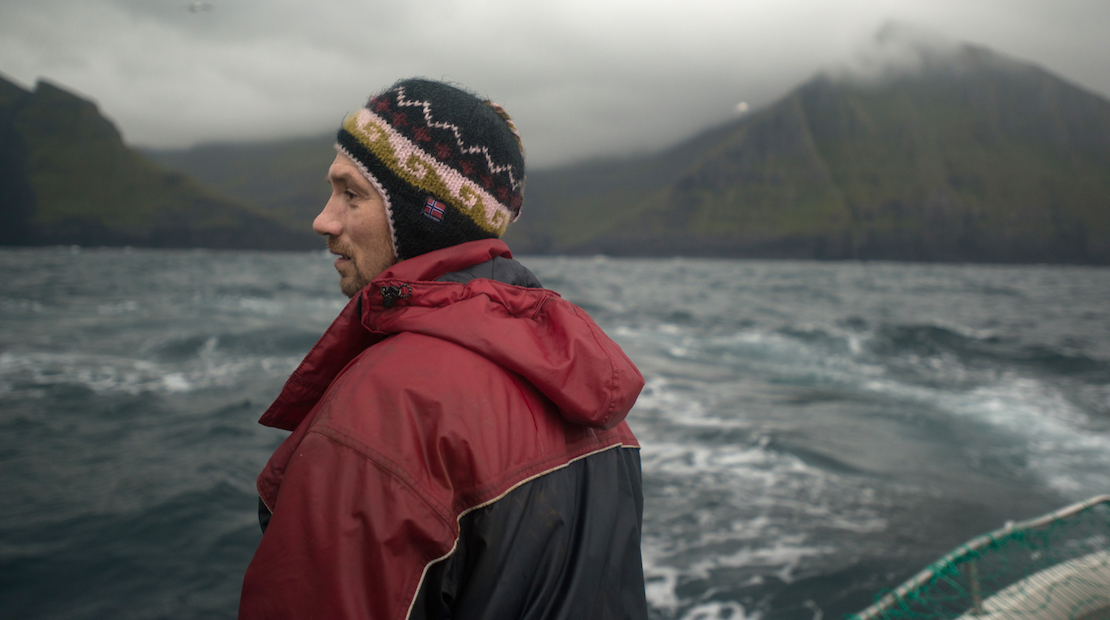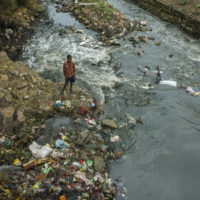For the past several years documentary filmmakers have spotlighted the conservation issues of commercial fishing. They have faced the biggest political adversaries in order to bring the brutal killings of dolphins and whales out of the shadows. Many might have seen The Islands and the Whales and thought the film was doing much of the same, but at yesterday’s film talkback, a panelist of scientists recognized yet another equally devastating truth from the film.
For ages, the Faroese people have participated in the ritualistic killing of pilot whales off the coast of Denmark in the Faroe Islands. The islands themselves have little to no success in raising livestock because of environmental conditions, so the residents there have hunted pilot whales for their main source of protein. It’s called subsistence hunting as the Faroese population has grown dependent on the whales to feed their population, which is estimated to be half the size of Boulder. But herein lies another problem. The whales are so full of mercury that the meat has become too toxic to eat. Residents of the islands are becoming ill and fear that very soon they will no longer be able to hunt.
We can hear sighs of relief everywhere at the very thought. The mass slaughtering of whales seems cruel and unnecessary to our culture here in the states. However, the film isn’t afraid to show that the subject matter is a two sided coin. On the one hand is the brutal killing of animals, but on the other is a population’s food supply being poisoned by major industrial countries. “It’s very difficult to judge them for hunting pilot whales when they can’t raise sheep or cattle well. It seems barbaric to us, but how much more barbaric is it sticking a steel rod through a cow’s head?” says Dr. Paddy Ryan from Colorado Ocean Coalition. He refers to the film’s poignancy which seems to carry the message that our pollution is speeding up the process of our extinction.
The film reaches no resolution perhaps because filmmakers want audiences to see the bigger picture. The Faroese are a small example of the impact human pollution has on our food resources. Mercury, in particular, is caused directly by the burning of fossils fuels, and who is Denmark’s biggest industrial neighbor to the west? We are.
According to members of the panel, the United States is a major contributor to the Mercury found in the Faroe Island waters because of the direction of our ocean currents and the fossil fuels we burn. Lauren Reigler from Colorado’s Ocean First Institute states, “I loved the film even though certain scenes were hard to watch it’s important for us to think about how our actions impact not just us in our community, but the world as a whole.” It’s a question of whether or not the United States can discontinue its relationship with fossil fuels once and for all and before it is too late.
Whether or not you accept the Faroese’s traditions, the film is another example that we are a species polluting its food source is consequently speeding up the process of our extinction. Despite the grim circumstances, the panel was very hopeful of future changes. “We have the technology to take a step in the right direction,” says Becky Dickson representative of the Indian Peaks Sierra Club. She’s aware that it will take time, but films like The Islands and the Whales will hopefully get more and more people involved with their communities. “What we need to do is put pressure on energy companies who have everything to gain from burning fossil fuels,” says Dickson. The film has already inspired local community leaders who will continue to fight for a better future. We hope it does the same for all who see it.




